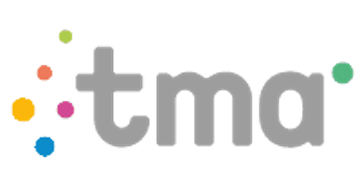PLAN A FREE TMA TALENT EXPERIENCE!
Method
Instruments
TMA Talent Assessment
Deep understanding of talents, motivation and competencies
TMA Career Advice
Non-judgmental and provides full insight into the best career opportunities
TMA Teambuilding
The Complete Guide to Team Building
360 Degree Feedback
TMA 360 degree feedback, a dialogue about behavior and skills
Cognitive Capability Assessments
Test the ability to learn and speed to apply new knowledge
Solutions
Applications
Apps
Talent MNGT
Materials
Certification
CasesMenu
- InstrumentsTMA Talent AssessmentDeep understanding of talents, motivation and competenciesTMA Career AdviceNon-judgmental and provides full insight into the best career opportunitiesTMA TeambuildingThe Complete Guide to Team Building360 Degree FeedbackTMA 360 degree feedback, a dialogue about behavior and skillsCognitive Capability AssessmentsTest the ability to learn and speed to apply new knowledge
- Cases






